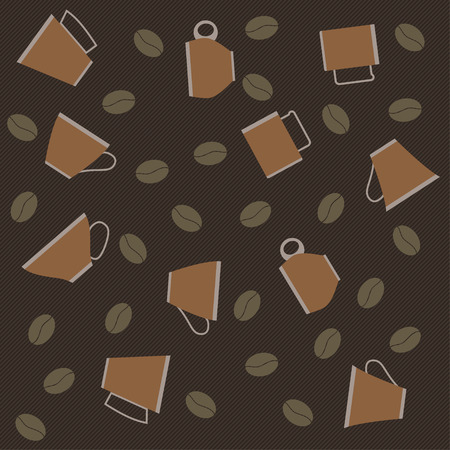1. Introduction: The British Love Affair with Coffee
If you asked me a decade ago what you’d find in the hands of most Brits on a sunny day, I’d have said a classic cup of tea or perhaps a fizzy drink for the little ones. But oh, how times have changed! Across the UK, coffee culture has blossomed in ways I never would have imagined, especially when it comes to the delightful world of iced coffee. It’s no longer just an exotic treat you’d spot on holiday abroad—iced coffee has found its way into our high streets, kitchens, and even into our family picnics at the local park. From bustling London cafés to cosy corners in Manchester, families are falling head over heels for this refreshing twist on their beloved brew. As we explore the fascinating journey of iced coffee in Britain, we’ll see how it’s gone from being a colonial import to a staple of modern life—capturing hearts (and taste buds!) all across the country.
2. Colonial Beginnings: Coffee’s Arrival in Britain
If you’ve ever wondered how coffee, especially the iced variety we enjoy today, made its way into British life, it all began with the bustling trade routes of the colonial era. Coffee first reached British shores in the 17th century, arriving as part of the broader wave of exotic imports like tea, sugar, and spices from far-flung colonies. At that time, coffee was considered a luxury item, enjoyed mostly by the upper classes and those who frequented London’s earliest coffee houses.
The Early Days: How Coffee Was Imported
| Century | Main Import Source | Popular Among |
|---|---|---|
| 17th Century | Ottoman Empire & Yemen | Nobility & Merchants |
| 18th Century | British Colonies (Caribbean, India) | Wider Middle Class |
Coffeehouses quickly became social hubs where people gathered to exchange news, ideas, and even conduct business. These establishments played a pivotal role in shaping British culture—some say they were the original “social networks”! The drink itself was initially served hot and strong, but as ice became more readily available thanks to advancements in shipping and storage, chilled coffee drinks started making an occasional appearance among the fashionable elite.
Cultural Impact on British Society
The arrival of coffee changed more than just drinking habits. It introduced new rituals around conversation and gathering—a tradition that still thrives in today’s cafés across the UK. Coffeehouses helped democratise information and fostered a sense of community long before the advent of modern media or technology.
Mum’s Tip!
Next time you sip an iced latte or cold brew at your favourite café, remember that you’re taking part in a centuries-old story that began with adventurous traders and curious Britons keen to taste something new. Isn’t it wonderful how a simple cup of coffee can connect us to so much history?

3. Iced Coffee’s Early Days: Experiments and Exotic Tastes
If you ever wondered when iced coffee first tickled British taste buds, the story goes back further than you might think! As a mum who loves a good natter over a frothy cuppa, I find it fascinating how our coffee rituals have evolved. In the 19th century, as the British Empire stretched across tropical lands, returning travellers and merchants began bringing home not only beans but also stories of exotic, chilled coffee concoctions. These early iced coffees were rare and considered quite the delicacy—often reserved for high society gatherings or daring adventurers looking to impress their guests with something truly different.
While most of us grew up with the comforting warmth of a classic English brew, some Victorian households were already experimenting with serving cold coffee at garden parties and summer luncheons. Recipes from old cookbooks suggest adding ice or even freezing strong coffee into ‘coffee ice’—a posh treat for those who could afford both imported ice and fine coffee beans. It was less about quenching thirst on a hot day (the British weather rarely demands it!) and more about creating a sense of novelty and luxury around the table.
Of course, these early experiments weren’t exactly like the iced lattes we know today; they leaned on sweetened syrups, a splash of cream, or even a tot of brandy for extra indulgence. For most Brits at the time, iced coffee remained an adventurous curiosity, often associated with travel abroad or glimpsed in the pages of fashionable lifestyle magazines. Still, these first sips laid the foundation for our later love affair with chilled coffee—and started us down the path towards making it an everyday treat in modern British cafés.
4. The Modern Cafe Boom: Iced Coffee Goes Mainstream
As a mum who loves her morning cuppa, I’ve seen the UK’s café culture bloom in ways I could have never imagined in my own childhood. Gone are the days when a pot of tea or a simple instant coffee were our only choices. Over the past two decades, independent cafés and big-name chains have popped up on nearly every high street across Britain, each with their own twist on the classic iced coffee. It’s no longer just a treat for holidays abroad; nowadays, iced coffee is truly at home here in the UK, especially when the British summer finally makes an appearance!
If you’re like me, you’ll remember when ordering an iced coffee felt quite exotic—now, it’s as much a part of our daily routine as popping into Boots or taking the kids to the park. Both independent coffee shops and major players like Costa, Starbucks, and Caffè Nero have helped make iced coffee a mainstream favourite, catering to everyone from teens to grandparents. There’s something so refreshing about grabbing an iced latte while out shopping or treating yourself after school pick-up.
| Café Type | Specialty Iced Coffee Offerings |
|---|---|
| Independent Cafés | Cold brew, creative flavours (vanilla, caramel), locally roasted beans |
| Major Chains | Iced americanos, frappuccinos, dairy-free options |
During summer months, you’ll see café menus bursting with iced coffee specials—from classic chilled lattes to adventurous concoctions featuring everything from coconut milk to honeycomb syrup. Even little ones want to join in with babycinos or decaf iced treats! It’s become part of our family rituals—an after-school reward or a weekend treat together.
This modern cafe boom has really brought people together. Whether you’re catching up with friends over an ice-cold brew or enjoying a quiet moment with your favourite book, there’s an iced coffee for every taste and occasion. And let’s be honest—on those rare sunny British days, nothing feels quite as blissful as sipping something cold and delicious outside your local café.
5. Changing Tastes: British Twists on Iced Coffee
As iced coffee found its place in the UK, it quickly took on some charmingly British characteristics, making it a real treat for families and coffee lovers alike. Rather than simply copying American or continental styles, Brits have created their own delightful twists that make iced coffee feel right at home in our kitchens and cafés.
Popular Flavour Pairings
In true British fashion, flavour is everything! Classic pairings like vanilla and caramel remain favourites, but more adventurous tastes have emerged too. Think a splash of Earl Grey syrup for that unmistakable tea aroma or a dash of salted caramel for a sweet-salty kick. Some local spots even add a hint of rhubarb or elderflower—so quintessentially British and perfect for summer afternoons. For chocolate lovers, there’s nothing quite as comforting as an iced mocha with a swirl of cream on top—a nod to our love of indulgent treats.
Family-Friendly Homemade Recipes
Making iced coffee at home has become a lovely family ritual, especially when the sun is shining. For little ones or those avoiding caffeine, decaf coffee or even barley-based alternatives work beautifully. Try brewing your favourite coffee, letting it cool, then pouring over ice and adding a splash of milk or plant-based alternative. My children adore adding a touch of honey and sprinkling cinnamon on top—it’s like pudding in a glass! For special occasions, why not blend coffee with ice cream to make an “iced coffee float”? It’s nostalgic, refreshing, and sure to bring smiles all round.
A Personal Touch
What I love most about these British twists is how they bring everyone together. Whether you’re sharing an iced latte in the garden with friends or whipping up a creamy concoction with your kids on a Saturday afternoon, there’s something so heartwarming about adapting this global trend to suit our tastes and traditions here in the UK.
6. Conclusion: Iced Coffee’s Place in Today’s British Home
As we look back on the fascinating journey of iced coffee through British history, it’s quite heartwarming to see how this once-exotic treat has found a cherished spot in our everyday lives. What started as a colonial import has gracefully evolved into a staple of modern British cafés and, more importantly, into the very heart of our homes. There’s something rather special about sharing a tall glass of iced coffee with loved ones, especially when the sun finally peeks out and graces us with those rare warm afternoons.
For many families, iced coffee isn’t just a drink—it’s a little moment of happiness, a way to gather together at the kitchen table or out in the garden, laughing and catching up over clinking ice cubes. Whether you enjoy it sweetened with a splash of syrup or prefer it bold and simple, iced coffee offers a refreshing pause from the bustle of daily life. It’s become a beloved ritual that bridges generations and invites creativity, with mums, dads, and even little ones helping to craft their own perfect cup.
Iced coffee’s place in today’s British home is a testament to how traditions adapt and flourish. It brings people together, brightens an ordinary day, and provides that much-needed pick-me-up when you need it most. So next time you pour yourself a glass, remember—you’re not just enjoying a cool beverage; you’re taking part in a delicious tradition that continues to bring families joy all across the UK.


